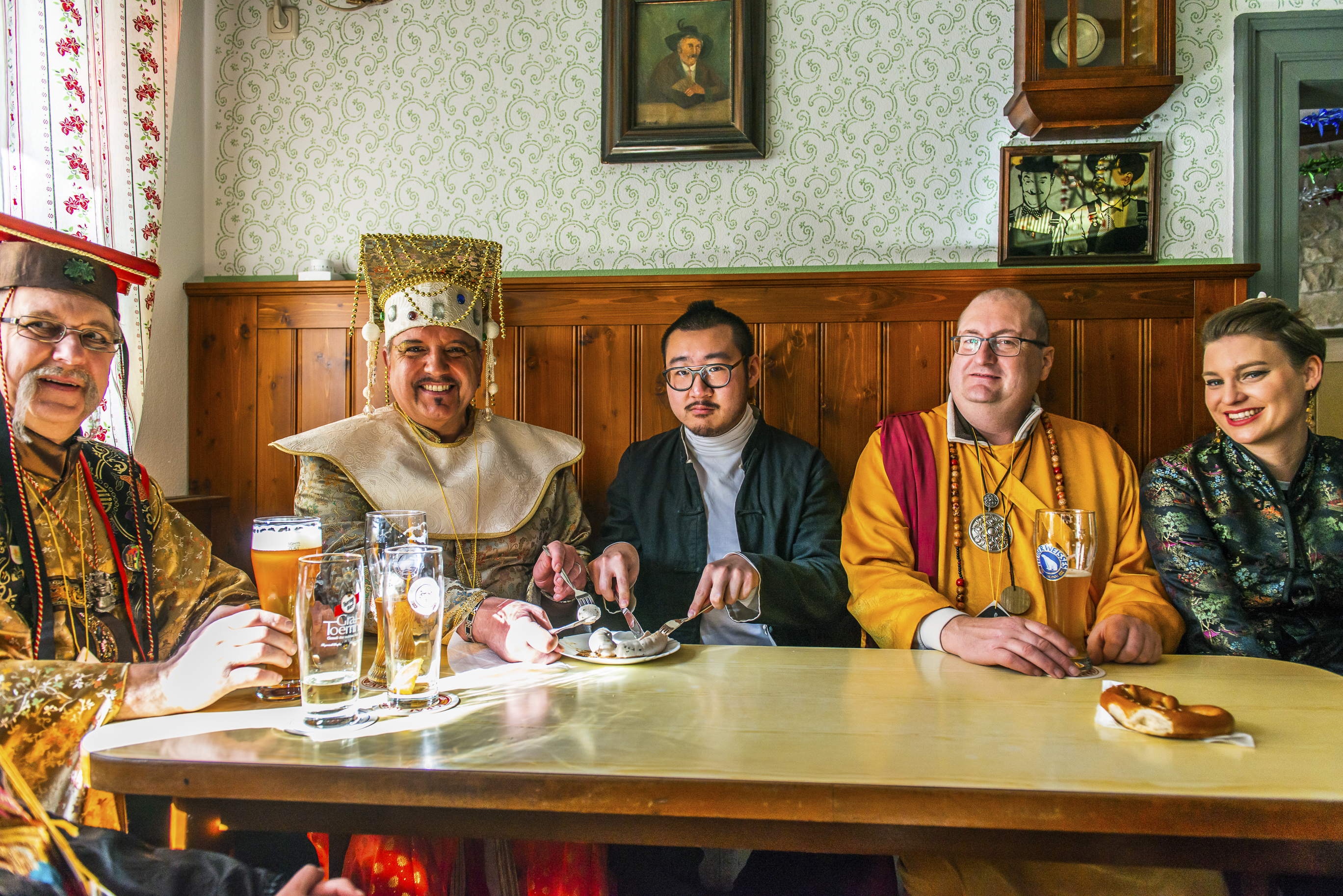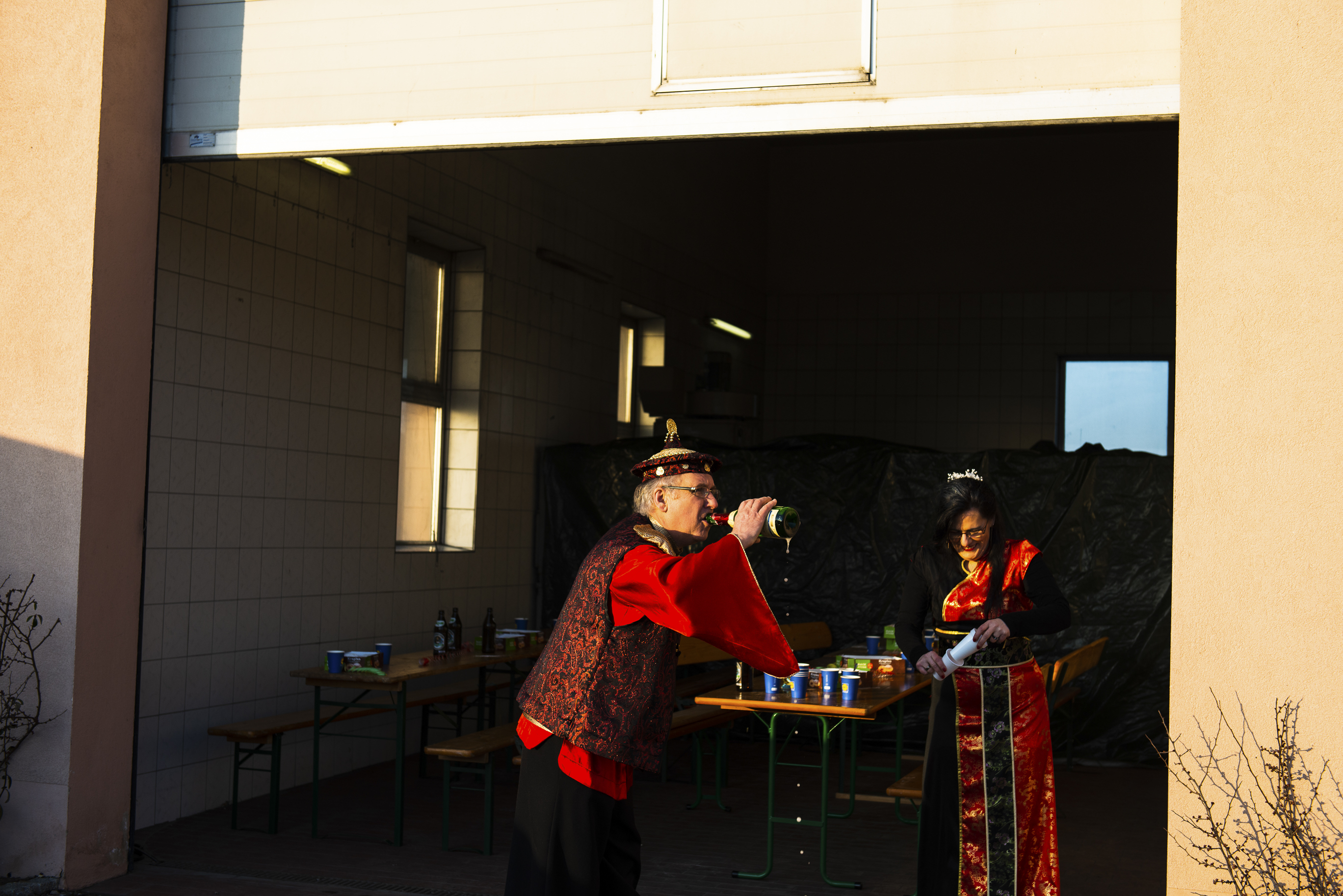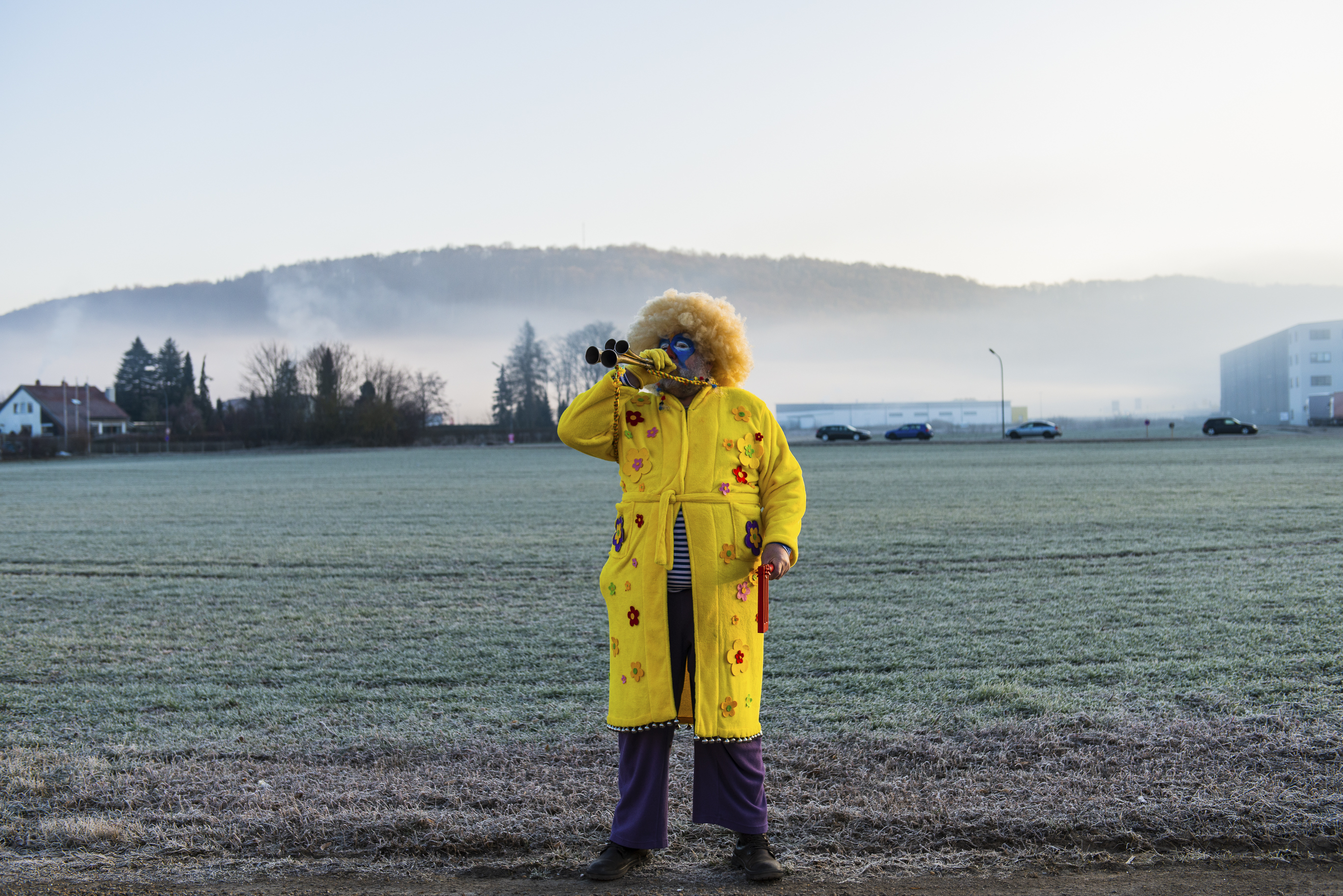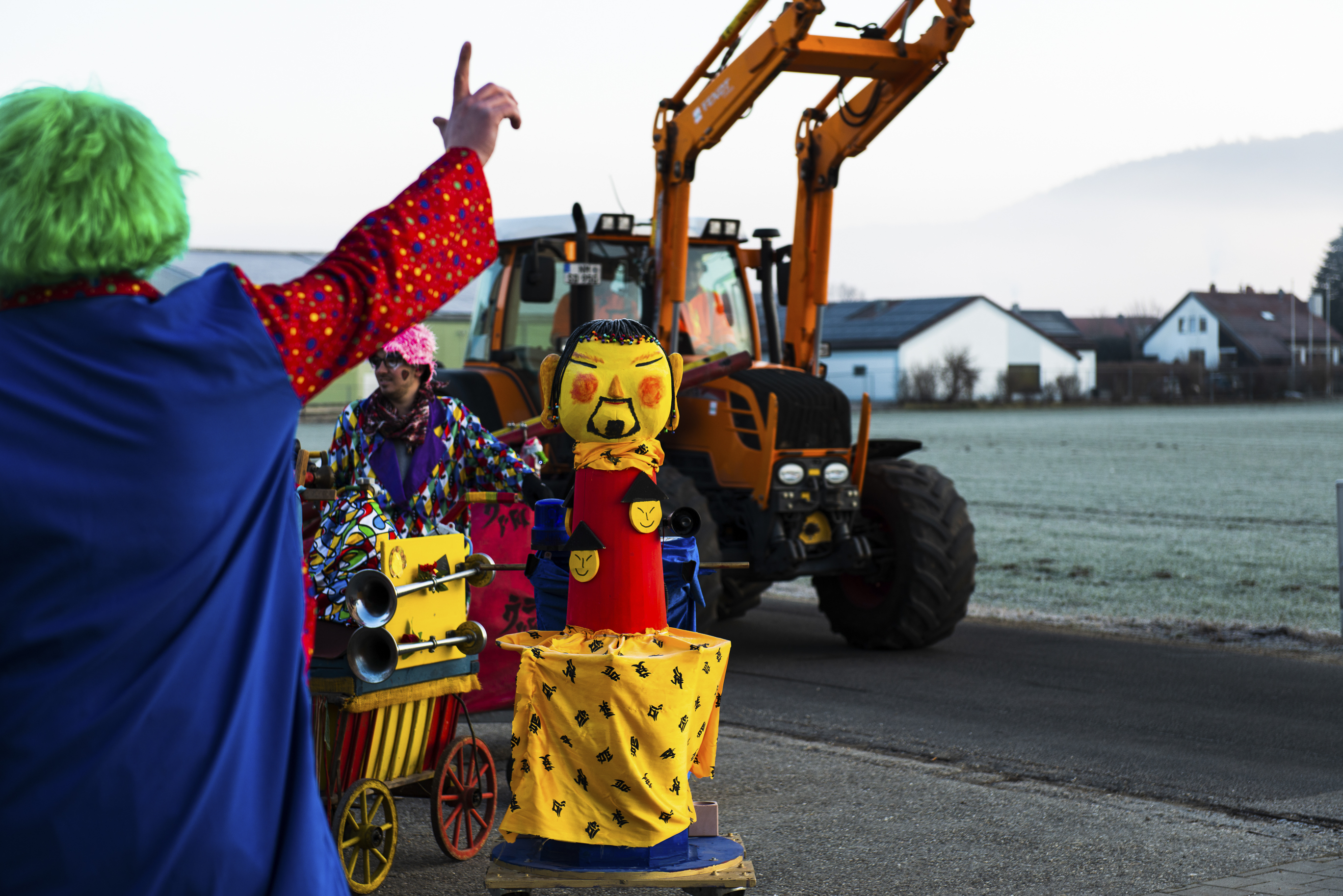
RACISM
|
By Marvin Xin Ku
|
Mar 28 2019, 4:53am
What I Learned About Racism as the Only Chinese Person at a 'Chinese' Festival
Every year, 20,000 people come together to wear eyeliner and shout "Ni hao" at each other at a Chinese festival in the Bavarian town of Dietfurt.
This article originally appeared on VICE Germany
It's everywhere. The local butcher shop has been renamed "The China Butcher Shop", while the bakery has transformed into a "Chinese Bakery" selling fresh "Chinese donuts and pretzels". There's light beer, dark oak furniture and red Chinese lanterns. The phrase "Ni hao!" is being shouted out at will.
Amid all this, I am the only real-life Chinese person in sight.

Dietfurt locals in "traditional Asian outfits" enjoy a drink.
The source of my confusion lies in the small German city of Dietfurt, situated along the Altmühl river in the south-east of the country. Every Thursday before Ash Wednesday, the city is transformed into "Bavarian China", and its inhabitants become "Chinese", dressing up in "traditional" clothing and wearing yellowface makeup. This annual festival is not some niche sideshow – around 20,000 people flock to Dietfurt every year to take part.
I grew up in northern Germany as the child of Chinese immigrants, and had experienced racism by the time I was in kindergarten – before I even knew what it was. I've come to Dietfurt to get an understanding not only of this bizarre tradition, but also the people behind it. What motivates the people of Dietfurt to hold this seemingly racist celebration year after year? And can "tradition" ever be a good enough excuse?
The Wake-Up Call
It's 1AM on the morning of the carnival. Thirty locals dressed in fur vests, red wigs and colourful face paint are gathered in a Chinese restaurant on the outskirts of the city. Loud, celebratory singing can be heard coming from inside. This is the traditional wake-up call. From here, the group of clowns will noisily make their way through the town to wake everyone up and officially inaugurate the carnival.
One of these clowns is Franz, a Dietfurt native with a strong local accent, tattooed arms and a flashy metal necklace. He's wearing a yellow bathrobe embroidered with flowers and a wig that looks like a giant piece of candy floss. His beard is braided into two pigtails tied with colourful bobbles. Franz is 56 years old, and for the last 38 of them he's participated in the carnival wake-up call.
"In the past, we've covered over 24 kilometres in a day," he tells me, adding that he and his fellow clowns take their roles very seriously – promising that nothing will stop them from completing their duties. "It doesn't matter if we get blitzed by ice or 15 centimetres of snow."

Franz.
Instead of the racist Chinese jokes I had expected, they're serving hot and sour soup with rye bread today. Franz beckons to the Chinese chef, Yuen, and orders another bowl for me. "Want some more bread, lad?" he asks. I've been at the table with Franz for less than 30 minutes, but I already feel like I belong here.
At 2AM we set off to wake up the local celebrities – the mayor, the dentist and the carnival's organising committee. Some play trumpets and trombones, and two men push a giant antique double-barrel cannon. "Whenever it goes off, the neighbouring town stands to attention," says Franz. Together, we march towards the city centre.
Dietfurt has 6,000 inhabitants but looks much smaller. There are more butchers than supermarkets, more inns than kebab shops. The one main street is called "Main Street", and there's a street named after the town's train station – though there's no longer a train station. A bus leaves five times a day and residents delight in telling me that it's easier to get out of Dietfurt than in.
So how did this festival wind up here?

Legend has it that long ago, the Bishop of the nearby town of Eichstätt sent his treasurer to Dietfurt to collect taxes. The people of Dietfurt got wind of it, so they barricaded the city gates and left the treasurer outside. He stomped back in a rage and complained that the Dietfurtians were hiding behind their walls "like the Chinese". If and when this might actually have happened isn't exactly clear.
Either way, Dietfurt has chosen to identify itself with Chinese culture ever since. In 1928, the Dietfurt City Orchestra were the first to play dress up – 16 men and women wearing rice hats, Chinese plaits and robes. In 1954, Dietfurt chose its first emperor.








 Reply With Quote
Reply With Quote